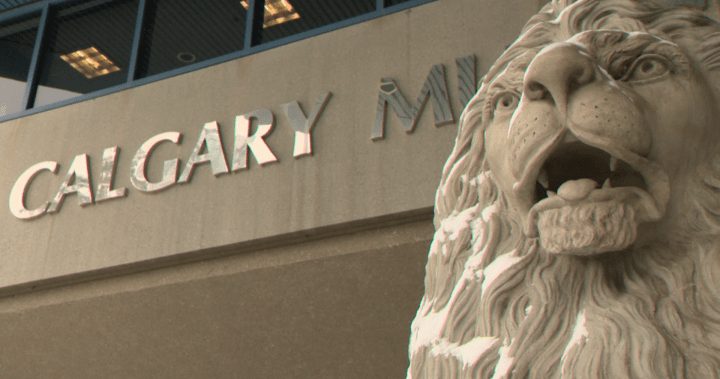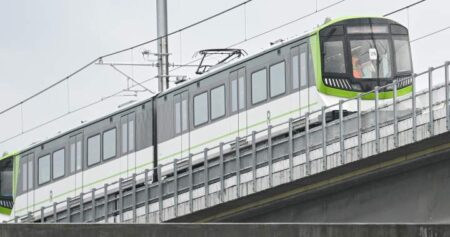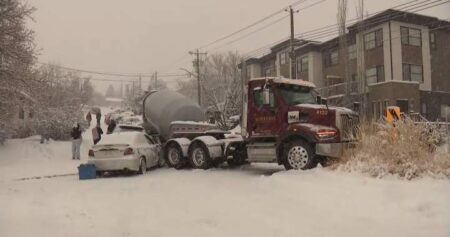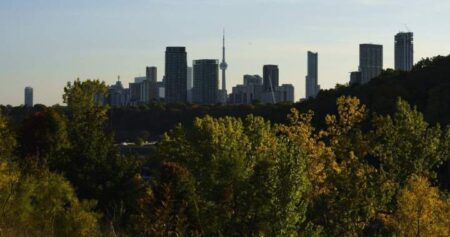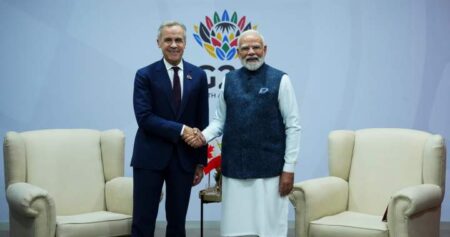Calgarians and local groups gathered at city hall Monday to share their thoughts during a public hearing on next year’s proposed budget, which is the final year of a four-year budget approved by the previous city council.
The public hearing, which began Monday morning, is expected to stretch into Tuesday as city officials confirmed more than 120 people are signed up to share their thoughts with the new council on what they want to see in the spending plan.
“There’s a great diversity in what people want to talk about but seemingly it’s very focused on ways to better support our city as it grows,” Ward 9 Coun. Harrison Clark told reporters. “I think it’s really important we take the time to listen to these people. They’re on the ground in their communities and they’re coming to us with really clear perspectives.”
Speakers covered subjects ranging from poverty reduction and programs like the low-income transit pass, to property taxes, funding for firefighters and 911 dispatch as well as housing.
However, a theme that emerged throughout the day was a number of organizations and Calgarians speaking in favour of recreation funding. Among them was Hamza Tariq, founder of the Future Stars Cricket Foundation.
“There’s a huge demand for not just youth and women but seniors who want to play the game,” said Tariq, who is also a member of Canada’s national cricket team. “The fields have to be in the right shape, in the right order with the right specifications for us to be able to accommodate all these groups.”

Get breaking National news
For news impacting Canada and around the world, sign up for breaking news alerts delivered directly to you when they happen.
Tariq encouraged council to maintain the previous council’s commitment to GamePLAN, the city’s 25-year plan to invest in and build more recreation facilities citywide.
The previous council committed to spending up to $250 million annually on the plan, which would allow the city to keep pace with population growth and provide an “equitable level of service” in both new and established communities.
“Calgary is a growing city, there’s people coming to Calgary from left, right and centre, and a lot of those people want to play sports, they want to play cricket,” Tariq said. “For now I’d say it’s a good start.”
The proposed budget includes millions in new spending for housing, transit, public safety and infrastructure.
Nathan Hawryluk spoke to council about the importance of funding road maintenance as part of the more than $87 million in infrastructure spending, which includes $24 million for pavement rehabilitation.
“We have a lot of roads and we should take care of them and if it turns out we can’t afford to take care of them, then we should be grown ups and have a conversation and admit that,” he said. “It would be nice if we could avoid a 2024 water situation with everything else that we have.”
The new spending would be partly paid for with a 3.6-per cent overall property tax increase approved by the previous city council, but a figure that differs depending on property type.
Preliminary estimates show a typical single-family home assessed at $706,000 would see a 5.8-per cent property tax increase, while a commercial property valued at $5,562,000 could expect a 1.3-per cent tax hike next year, according to budget documents.
Calgary Mayor Jeromy Farkas reiterated to reporters Monday that he wants the residential tax increase cut in half.
“Despite the fact we’ve been handed a set of priorities and a tax increase by the prior council, we do have enough agency and ability to impact what’s before us to particularly drive down the significant nature of the tax increase that was proposed by the previous council,” he said.
How council plans to reduce the tax increase will be revealed later this week, but Ward 10 Coun. Andre Chabot shared some ideas including cuts to programs that are provincial responsibility, and cancelling a proposed one per cent shift of the tax burden from businesses onto residential properties.
“Right now, residential taxpayers are looking for some sort of relief and the businesses can write off whatever increases they have to pay. Residents can’t,” Chabot told reporters. “That’s one I will definitely be putting forward.”
However, Ruhee Ismail-Teja, the Calgary Chamber of Commerce vice-president for policy and external affairs, said the move would be “untenable” as there are fewer commercial properties compared to residential homes.
“Property owners on the non-residential side can’t, according to provincial law, pay more than five times what residents are paying,” Ismail -Teja said. “We are coming dangerously close to that limit, and the province intervening.”
The proposed budget shows the ratio forecasted tax ratio at 4.42:1, but would climb to 4.60:1 without the tax shift.
Following the public hearing, city council will ask questions of each city department, including Calgary Transit and Calgary Police Service, before debate would begin on the budget proposal.
Read the full article here





